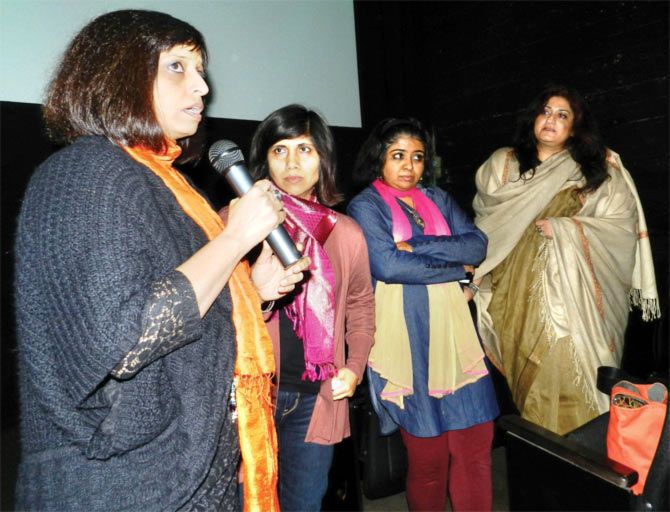 More than 6,000 people attended 3rd i’s (pronounced third eye) 11th annual San Francisco International South Asian Film Festival, held from November 7 to 16.
More than 6,000 people attended 3rd i’s (pronounced third eye) 11th annual San Francisco International South Asian Film Festival, held from November 7 to 16.
The theme was celebrating the 100th anniversary of Indian cinema, with focus on women filmmakers.
The festival showcased about 20 films and documentaries from India, Pakistan, Sri Lanka, Canada and the United States -- art-house classics to cutting-edge Bollywood.
“It was a resounding success,” said Ivan Jaigirdar, co-founder of 3rd i in San Francisco.”
The last decade, he said, “has seen the emergence of a true indie scene in South Asian cinema -- Anand Gandhi’s Ship of Theseus, for instance -- and a desire for experimentation even in the mainstream. Vasan Bala’s Peddlers is essentially a Bollywood film in terms of production resources, if not in aesthetics. And this year’s Bollywood film Shuddh Desi Romance pushes the limits in terms of content.”
The documentaries, he said, addressed issues like “gender violence in India, juvenile delinquency and trauma of civil war.”
He cited These Birds Walk by New York-based filmmakers Omar Mullick and Bassam Tariq as an example of Diaspora filmmakers “choosing to go back to South Asia to find their stories.”
At the screenings in Palo Alto November 16, one of the films was Stanford University economics graduate Sushrut Jain’s Beyond All Boundaries, co-produced by The Big Bang Theory star Kunal Nayyar. The documentary focuses on India’s obsession with cricket.
“We have tried to capture the reality,” Mumbai-born Jain said, “and show (that) the reality has two sides. One, you have a great passion for cricket and it’s exciting and gives hope for the future, but it’s not enough for a country the size of India.”
Another film screened was director Nishtha Jain’s Gulabi Gang, about a vigilante women’s group in north India formed by a woman named Sampat Pal. The group reportedly has 150,000 members who fight gender violence, caste oppression and widespread corruption.
“I wanted to show the complexity of carrying out women’s struggle,” Jain said. “I did not want to make a feel-good film; I wanted to look at the complexities and challenges that this group faces as well as little achievements.”
In the picture: Gulabi Gang’s director Nishtha Jain, left, in Palo Alto







